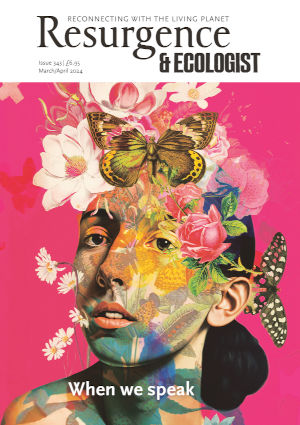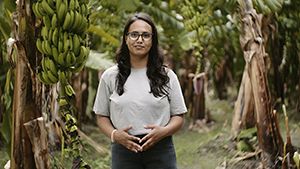Growing up in a small community in Nepal, I experienced first-hand the heavy stigma surrounding menstruation. In our society, menstruating individuals are considered impure and dirty, subjected to a web of restrictions rooted in traditional beliefs that range from being prohibited from entering religious places and kitchens to avoiding contact with males, water sources, food products, and even animals and plants. In some communities in the western region of Nepal, women are banished to isolated menstrual sheds far away from their families, a practice known as Chhaupadi.
My personal journey into this world began at the age of six when I accompanied my older sister during her first period. She was isolated in a room far from our home for 14 days, where she had to be hidden from sunlight and male family members. Dependent on someone else for food and water during this period (and at a time in our lives when neither she nor I had much knowledge about what it means to menstruate), the whole experience left a lasting impact on her sense of freedom and wellbeing.
My first period was also followed by a set of strict rules and restrictions, despite my avoiding the extreme isolation my sister had faced. The lack of awareness within our family and the unavailability of period products in our village added to the challenges, making a period an unbearable event in my life. In my community, using cloth pieces was the norm, and missing school due to heavy bleeding and period pain was considered commonplace.
In 2016, my journey took a turn when I moved to Kathmandu for higher education. It was in my high school that I finally learned about menstruation – a topic often avoided in schools in Nepal. It felt unfair that we, as women, should endure societal taboos and adhere to traditions that violate our fundamental human rights, all because of a natural biological process experienced by approximately 1.8 billion people worldwide. The motivation to change the status quo led to a collaboration with non-profit organisations in Kathmandu, where I designed and led awareness and educational campaigns on menstrual health, which impacted over 200 young Nepali individuals until 2019.
Despite the progress, a sad reality persisted in the form of worrying statistics. More than 84% of menstruators in Nepal lacked access to menstrual products, and widespread ignorance of menstruation persisted. Additionally, more than 90% of menstrual products, predominantly imported, contained plastics, adding to the issue of plastic pollution worsened by Nepal’s inadequate waste management infrastructure.
In Nepal, the annual sale of approximately 127 million sanitary items results in the generation of 120 tonnes of plastic waste, primarily from menstrual products, especially pads. This fact was a driver behind my eagerness to find a solution that addressed the issues of both period poverty and plastic pollution in a sustainable way.
In 2020, the seed of a new project was planted at NIDISI, a non-profit organisation developing innovative and scal-able solutions to address social and environmental issues in Nepal. The idea was to create a social enterprise in Nepal that produces and sells compostable menstrual pads made from banana plants while using the profits for educational campaigns on menstrual health. Having volunteered with NIDISI for three months on a water project, I joined forces with four other dedicated individuals – Florian Didier, Ashmita Poudel, Justine Bourg and Antonia von Consbruch – and Project Sparśa came into existence.
Three years and 10 months later, our journey has been nothing short of extraordinary. We’ve developed three prototypes, registered Sparśa as a women-led non-profit company in Nepal, established partnerships with local banana farmers and the government, designed fibre production machines, set up a banana fibre production factory, and conducted extensive research on menstrual practices in Nepal. Our awareness campaigns on menstrual health and hygiene have reached over 8,000 people, and the construction of our pad factory is under way.
However, this journey hasn’t been without challenges. Working on a stigmatised topic like menstruation, especially as a young woman from an Indigenous community, presented its own set of bureaucratic and complex hurdles. The onset of the Covid-19 pandemic and strict lockdowns disrupted our plans, resulting in the loss of local suppliers and a delay in fulfilling our goals.
The struggle, though, has been met with unwavering support. Winning the Iris Prize has provided a significant boost to our motivation. Thanks to the grant we received through the prize, we are now able to build our pad production factory, with production planned to start in the near future. The additional support, such as mentorship, capacity-building training and a new website and updated brand development, has been very helpful in our growth.
As we continue our journey, Sparśa stands as a testament to the resilience and determination needed to challenge societal norms and empower women in different communities across Nepal. Breaking menstrual taboos while creating an environment-friendly alternative to end period poverty in Nepal is an ongoing mission, and with every step, we strive to create lasting change and a more equitable future for all.
The Iris Project was set up in memory of Iris Goldsmith, who died in a tragic accident in 2019 at the age of 15. In the form of a global, annual award, The Iris Prize exists to enable young people all over the world to protect and restore Nature. Each year, The Iris Project awards trust-based funding, mentorship and capacity building to three winners and six runner-up projects. The Iris Prize will open again for applications on 1 March 2024. Visit www.theirisproject.org to find out more.








